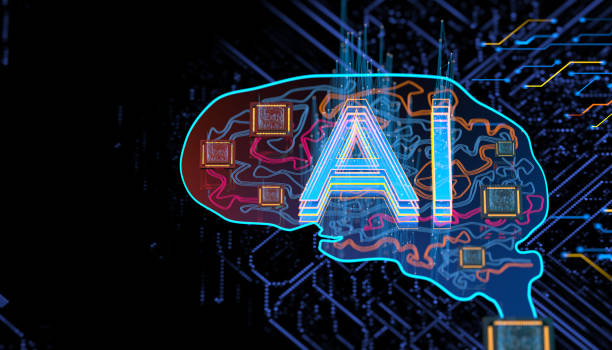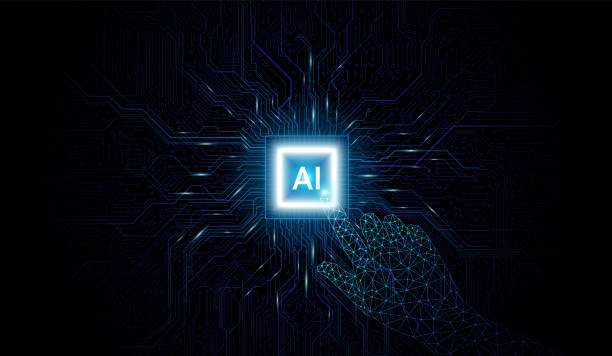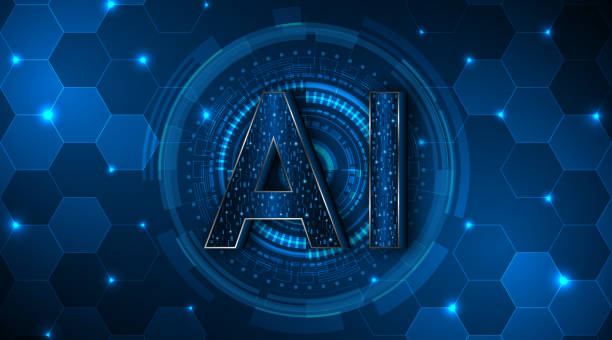What is artificial intelligence and what are its applications?
What is artificial intelligence and what are its applications?
Artificial intelligence (#AI) is a branch of computer science that deals with building machines that are capable of performing tasks that usually require human intelligence.
These tasks include learning, reasoning, problem-solving, understanding natural language, pattern recognition, and computer vision.
The main goal of artificial intelligence is to create systems that can think and make decisions independently.
The applications of artificial intelligence are very broad and diverse.
In medicine, AI is used to diagnose diseases, develop drugs, and provide personalized care.
In industry, AI helps improve production processes, quality control, and optimize the supply chain.
In finance, AI is used for fraud detection, risk management, and providing investment advice.
Also, AI plays an important role in self-driving cars, virtual assistants, robots, and many other fields.
With the increasing advancements in this field, it is expected that artificial intelligence will play a more prominent role in our daily lives and transform many industries and jobs.
The growing applications of artificial intelligence in self-driving cars indicate a future in which this technology will increasingly penetrate our lives.
Does your current website turn visitors into customers or scare them away? Solve this problem forever with a professional corporate website design by Rasaweb!
✅ Create a powerful reputation and branding
✅ Attract target customers and increase sales
⚡ Get a free consultation now!
History and evolution of artificial intelligence
History and evolution of artificial intelligence
The idea of artificial intelligence dates back to the 1950s, when scientists such as Alan Turing and John McCarthy began exploring the possibility of building machines with human-like intelligence.
The Dartmouth Conference in 1956 is considered a turning point in the history of artificial intelligence.
At this conference, the term “artificial intelligence” was officially introduced, and the goals and challenges of this field were discussed.
Click here to preview your posts with PRO themes ››
In the 1960s and 1970s, artificial intelligence experienced successes in areas such as problem-solving and game development.
However, hardware and software limitations slowed progress and over-expectations were not met.
This period is known as the “AI winter.”
In the 1980s and 1990s, with the emergence of expert systems and neural networks, artificial intelligence experienced a resurgence.
Expert systems were computer programs that stored specialized knowledge in a particular domain and used it to solve problems.
Neural networks were also computational models inspired by the structure of the human brain.
This period also faced limitations and progress slowed again.
From the 2000s onwards, with significant advances in computer processing power, access to big data, and the development of deep learning algorithms, artificial intelligence has witnessed a renaissance.
Deep learning is a type of machine learning that uses deep neural networks to learn from big data.
This technique has achieved very good results in areas such as computer vision, natural language processing, and speech recognition.
Machine learning and deep learning are the main pillars of artificial intelligence
Machine learning and deep learning are the main pillars of artificial intelligence
Machine Learning is a subset of artificial intelligence that allows machines to learn from data without explicit programming.
In machine learning, algorithms are trained using data to identify patterns and relationships in the data and, based on that, make predictions or decisions.
Deep Learning is a type of machine learning that uses deep neural networks to learn from data.
Deep neural networks are networks that consist of multiple layers and can identify complex patterns in data.
Deep learning has achieved very good results in areas such as computer vision, natural language processing, and speech recognition.
The main difference between machine learning and deep learning is that machine learning requires feature engineering, while deep learning can learn features automatically from the data.
Feature engineering is a process in which important features are extracted from the data and presented to the machine learning algorithm.
Deep learning, using deep neural networks, can perform this process automatically and reduce the need for feature engineering.
Click here to preview your posts with PRO themes ››
For example, to detect a face in an image, a machine learning algorithm may need feature engineering to extract important features such as the eyes, nose, and mouth from the image and present them to the algorithm.
In contrast, a deep neural network can automatically learn these features from the image and eliminate the need for feature engineering.
| Feature | Machine Learning | Deep Learning |
|---|---|---|
| Need for Feature Engineering | Yes | No |
| Complexity | Less | More |
| Amount of data needed | Less | More |
Types of artificial intelligence algorithms
Types of artificial intelligence algorithms
Artificial intelligence algorithms are divided into different categories, including:
- Supervised Learning Algorithms In this type of learning, the algorithm is trained using labeled data.
Labeled data includes inputs and desired outputs.
The goal is for the algorithm to learn the relationship between inputs and outputs and, based on that, predict appropriate outputs for new inputs. - Unsupervised Learning Algorithms In this type of learning, the algorithm is trained using unlabeled data.
The goal is for the algorithm to identify hidden patterns and structures in the data. - Reinforcement Learning Algorithms In this type of learning, the algorithm is trained by interacting with the environment.
The algorithm receives feedback by performing various actions in the environment and tries to learn policies that lead to greater rewards.
Each of these categories includes different algorithms that are designed for specific problems.
For example, regression and classification algorithms in supervised learning, clustering and dimensionality reduction algorithms in unsupervised learning, and Q-learning and SARSA algorithms in reinforcement learning are used.
Choosing the right algorithm depends on the type of problem, the available data, and the desired goals.
Research shows that 80% of customers trust companies with professional websites more. Does your current website inspire this trust?
With Rasaweb’s corporate website design services, solve the problem of customer distrust and a weak online image forever!
✅ Create a professional image and increase customer trust
✅ Attract more sales leads and grow your business
⚡ Get a free consultation
Applications of artificial intelligence in various industries
Applications of artificial intelligence in various industries
Artificial intelligence has many applications in various industries, including:
- Medicine Disease diagnosis, drug development, personalized care, robotic surgery.
- Industry Improving production processes, quality control, optimizing supply chains, predicting equipment failure.
- Finance Fraud detection, risk management, providing investment advice, algorithmic trading.
- Transportation Self-driving cars, route optimization, traffic management, providing logistics services.
- Retail Providing personalized recommendations, inventory management, optimizing pricing, fraud detection.
These are just a few examples of the applications of artificial intelligence in various industries.
With the increasing advancements in this field, it is expected that the applications of artificial intelligence will become more extensive and diverse.
Challenges and limitations of artificial intelligence
Challenges and limitations of artificial intelligence
Despite the significant advancements in the field of artificial intelligence, this technology still faces numerous challenges and limitations, including:
- Need for big data Machine learning algorithms, especially deep learning algorithms, require a large amount of data for training.
Collecting and preparing this data can be time-consuming and costly. - Interpretability problem Some machine learning algorithms, especially deep neural networks, are known as “black boxes.”
This means that it is difficult to understand how these algorithms make decisions.
This problem can be problematic in applications that require transparency and explainability. - Bias Machine learning algorithms can learn and reinforce biases present in the training data.
These biases can lead to unfair and discriminatory decision-making. - Security Artificial intelligence systems can be vulnerable to cyberattacks.
For example, attackers can manipulate input data, deceive algorithms, and cause them to make incorrect decisions. - Ethical issues The use of artificial intelligence can raise numerous ethical issues, including issues related to privacy, accountability, and impact on employment.
The future of artificial intelligence and its impact on society
The future of artificial intelligence and its impact on society
The future of artificial intelligence is bright and full of potential.
With the increasing advancements in this field, it is expected that artificial intelligence will play a more prominent role in our daily lives and transform many industries and jobs.
However, these developments can also bring new challenges and issues.
One of the most important impacts of artificial intelligence on society will be the change in the nature of work.
With the automation of many tasks, some jobs may disappear, while new jobs will be created that require new skills.
Therefore, training and retraining the workforce to adapt to these changes is essential.
Also, the use of artificial intelligence can create new ethical and social issues, including issues related to privacy, accountability, and discrimination.
To address these issues, there is a need to develop new laws and regulations and create ethical frameworks.
| Impact | Example |
|---|---|
| Automation | Automating production processes |
| Improved Decision-Making | Early diagnosis of diseases |
| Personalization | Providing customized content to users |
How to learn artificial intelligence?
How to learn artificial intelligence?
Learning artificial intelligence can be a challenging but very rewarding process.
To get started, you can use the following resources:
- Online Courses Online learning platforms such as Coursera, edX, and Udacity offer numerous courses in artificial intelligence, machine learning, and deep learning.
- Books There are many books on artificial intelligence that can help you understand basic and advanced concepts.
- Scientific Articles Scientific articles can help you understand the latest advancements and research in the field of artificial intelligence.
- Practical Projects Doing practical projects can help you learn how to use artificial intelligence algorithms in real-world problems.
To learn artificial intelligence, having a basic knowledge of mathematics, statistics, and programming is essential.
Programming languages such as Python and R are widely used in artificial intelligence.
Are you bothered by losing customers who have visited your site to make a purchase?
Rasaweb is your specialized solution for having a successful online store.
✅ Significantly increase your online sales
✅ Create trust and professional branding with customers⚡ Get a free consultation from Rasaweb experts!
Popular tools and libraries in artificial intelligence
Popular tools and libraries in artificial intelligence
For developing artificial intelligence applications, there are various tools and libraries that can help you.
Some of the most popular of these tools and libraries are:
- TensorFlow is an open-source library for machine learning and deep learning that was developed by Google.
- PyTorch is another open-source library for machine learning and deep learning that was developed by Facebook.
- Scikit-learn is an open-source library for machine learning that includes various algorithms for regression, classification, clustering, and dimensionality reduction.
- Keras is a high-level API for building and training deep learning models.
Keras can work with TensorFlow, Theano, and CNTK as backends. - OpenCV is an open-source library for computer vision that includes various algorithms for image processing, face detection, and object tracking.
These tools and libraries can help you develop artificial intelligence applications more quickly and easily.
Career prospects in the field of artificial intelligence
Career prospects in the field of artificial intelligence
With the increasing advancements in the field of artificial intelligence, the demand for artificial intelligence specialists is increasing.
There are numerous job opportunities in this field, including:
- Data Scientist Data scientists are responsible for collecting, cleaning, analyzing, and interpreting data.
They use machine learning algorithms to solve business problems and provide insights. - Machine Learning Engineer Machine learning engineers are responsible for developing, deploying, and maintaining machine learning models.
They collaborate with data scientists to create accurate and efficient models. - AI Researcher AI researchers research and develop new algorithms and improve existing algorithms.
They work in universities, research companies, and technology companies. - Robotics Engineer Robotics engineers are responsible for designing, building, and maintaining robots.
They use artificial intelligence to control and plan the behavior of robots.
To succeed in these jobs, having a strong knowledge of mathematics, statistics, programming, and artificial intelligence is essential.
Also, having problem-solving, critical thinking, and communication skills is also important.
Frequently Asked Questions
| Question | Answer |
|---|---|
| What is the definition of Hoosh Masnooi (Artificial Intelligence)? | It is a field in computer science that aims to create intelligent machines that can think, learn, solve problems, and make decisions like humans. |
| Mention some common applications of Artificial Intelligence. | They include self-driving cars, voice assistants (like Siri and Alexa), recommendation systems (like Netflix and Amazon), facial recognition, and medical diagnosis. |
| What is the difference between Narrow AI (ANI) and General AI (AGI)? | Narrow AI is specialized in a single, specific task, while General AI possesses human intellectual ability to perform any cognitive task. |
| What is Machine Learning and its relation to Artificial Intelligence? | Machine Learning is a branch of Artificial Intelligence that focuses on developing algorithms that allow systems to learn from data without explicit programming. |
| What are Artificial Neural Networks? | They are computational models inspired by the structure and function of the human brain, used in deep learning to process data and discover complex patterns. |
| Mention some ethical challenges related to Artificial Intelligence. | They include issues of privacy, bias in data and algorithms, job loss, and responsibility in case of errors or unfair decisions. |
| What is Natural Language Processing (NLP)? | It is a branch of Artificial Intelligence that focuses on enabling computers to understand, interpret, and generate human language in a useful and interactive way. |
| How can Artificial Intelligence affect the job market? | It can lead to the automation of some routine tasks, requiring the retraining of workers and the creation of new jobs in the areas of designing, developing, and maintaining Artificial Intelligence systems. |
| What is Computer Vision? | It is a field in Artificial Intelligence that enables computers to “see,” understand, and interpret images and videos in the same way that humans do, allowing them to recognize objects and faces. |
| What is the importance of data in developing Artificial Intelligence systems? | Data is the fuel that feeds Artificial Intelligence systems, especially in machine learning. The quality and quantity of data significantly affect the accuracy and performance of models and their ability to learn and make correct decisions. |
And other services of Rasa Web Advertising Agency in the field of advertising
Smart Custom Software: A professional solution for analyzing customer behavior with a focus on SEO-driven content strategy.
Smart Digital Advertising: An innovative service to increase user engagement through attractive user interface design.
Smart Custom Software: A quick and efficient solution for attracting customers with a focus on marketing automation.
Smart Website Development: Designed for businesses looking to manage campaigns through dedicated programming.
Smart Brand Identity: Professional optimization for analyzing customer behavior using SEO-driven content strategy.
And over a hundred other services in the field of internet advertising, advertising consulting, and organizational solutions
Internet Advertising | Advertising Strategy | Advertorial Reports
Resources
What is artificial intelligence and how does it work?
,What is Artificial Intelligence?
,What is artificial intelligence? What are its applications?
,Introduction to Artificial Intelligence in Simple Language
? Are you ready to transform your business in the digital world? Rasaweb Afarin Digital Marketing Agency, with a specialized team and an innovative approach, offers comprehensive and effective solutions for your powerful presence on the web.
From website design with a modern user interface and professional SEO to smart social media management and targeted advertising campaigns, we provide everything you need for your online success. Take a big step towards lasting success with Rasaweb Afarin.
📍 Tehran, Mirdamad Street, next to the Central Bank, South Kazerun Alley, Ramin Alley, No. 6














